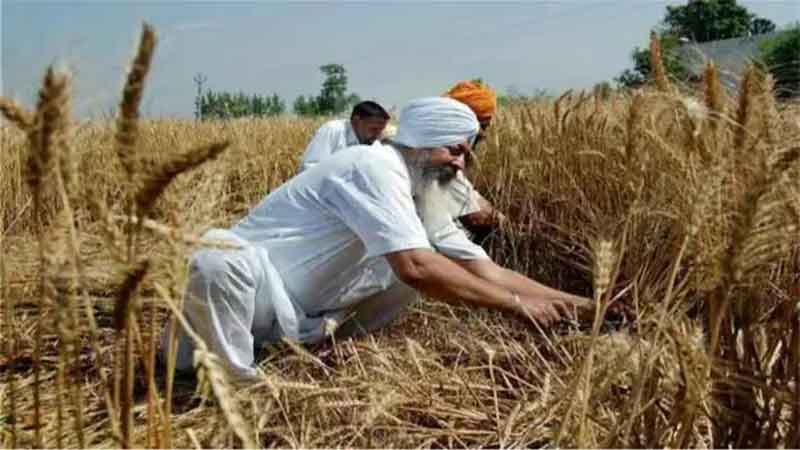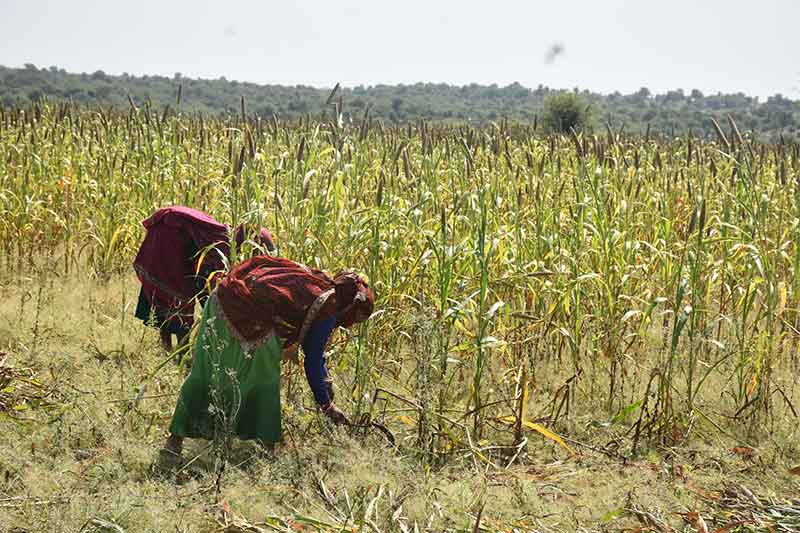
Farmers have been experiencing adverse weather conditions more frequently and their need for crop insurance is increasing. Hence they had high hopes when the flagship government scheme for this PMFBY was introduced some years back.
Unfortunately their experience with the actual performance of this scheme has generally been highly disappointing, although there may be some exceptions where special efforts for better results were made by officials. Several reports including those of Parliamentary Standing Committee have brought out this disappointment with a scheme which had once evoked high hopes.
This disappointment and the reasons for this are well brought out in a recent article by Pandurang Hegde appropriately titled ‘The Mirage of Crop Insurance’ and published in The Deccan Herald dated 25 December. I had the honor of following closely the journey of Pandurang from Himalayan villages to initiating the famous Appiko movement in parts of South India for saving forests, particularly in Karnataka. Despite becoming famous at a young age, he chose to work on a family farm in a remote village of Uttar Kannada. Hence when he writes about crop insurance or other such farming issues, he really knows about this from his daily experiences as a small farmer.
Pandurang writes that when the PMFBY first came up around 2016, he found that from his annual crop loans the premium was arbitrarily deducted, but he never got a copy of the insurance policy, or a receipt of the premium paid, or even came to know the name of the insurance company he had been linked to, even when he specifically asked for all this information and documents. Thus the accountability of the insurance company was not established in any way.
Recently in early December the paddy crop on the farm of Pandurang suffered excessive damage. He found that instead of the promise of evaluating the crop damage accurately using high technology, this was still being done by old crop cutting experiments on sample farms. Premium was collected individually but assessment of damage was at panchayat level, or at the level of a cluster of villages or hamlets. Pandurang was told his farm too had been selected for assessing crop damage, but when this did not happen he learnt from making inquiries that the insurance company agent had managed to shift the evaluation to those farms which suffered less damage. Hence Pandurang reached this sad conclusion in his widely discussed article, “After 8 years of chasing the mirage of crop insurance, I feel that it is merely a tool to siphon off public money into the coffers of private insurance companies.”
The government must listen very carefully to what this sincere farmer and writer has to say as being highly educated (he is a gold medalist from the post-graduation course of the prestigious Delhi School of Social Work) he tried his best to make crop insurance work for him but did not succeed. Ordinary farmers are even less likely to succeed in getting any benefits out of unwilling, profit-mongering companies. Having spoken to numerous farmers in several villages regarding crop insurance I can also confirm that generally the experiences of these farmers have been very disappointing, although very rarely I have also received some positive response.
The Parliamentary Standing Committee on agriculture in its 2021 report on crop insurance drew critical attention to arbitrary deductions from crop loans for insurance schemes, delays in settlements, absence of grievance removal systems, insurance companies not having tehsil-level offices, lack of accountability and absence of CSR or corporate social responsibility work by some companies in the area of their operations.
It appears that the crop insurance scheme has been prepared in such a way that crop insurance companies can avoid accountability to farmers who are paying premiums to them while at the same ensuring high profits for themselves. Very high profit margins for them have been reported.
It is this kind of corporate dominance which truly harms farmers and has led their organizations to demand that the harmful corporate dominance in farming should be curbed.
Despite the highly unsatisfactory performance of crop insurance so far, the fact remains that there is increasing need of farmers for crop insurance in times of increasingly adverse, erratic and uncertain weather conditions. If crop insurance cam work properly, then farmers will improve their resilience while their tensions and stress will reduce. The objective of climate change adaptation will also be well served.
Subscribe to Our Newsletter
Get the latest CounterCurrents updates delivered straight to your inbox.
It is better to avoid private insurance companies and to give crop insurance work to one or more public sector insurance companies. However even if the government insists on private insurance companies it should clearly establish the accountability of companies to farmers in various ways. There should be careful monitoring of the performance of the companies and strict action should be taken against those companies which fail to honor their commitments. Farmers should be ensured of getting proper compensatory payments whenever their crops are harmed.
Bharat Dogra is Honorary Convener, Campaign to Save Earth Now. His recent books include India’s Quest for Sustainable Farming and Healthy Food, Man over Machine , Pandurang’s Story and A Day in 2071.
















































